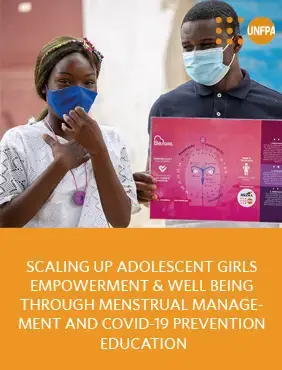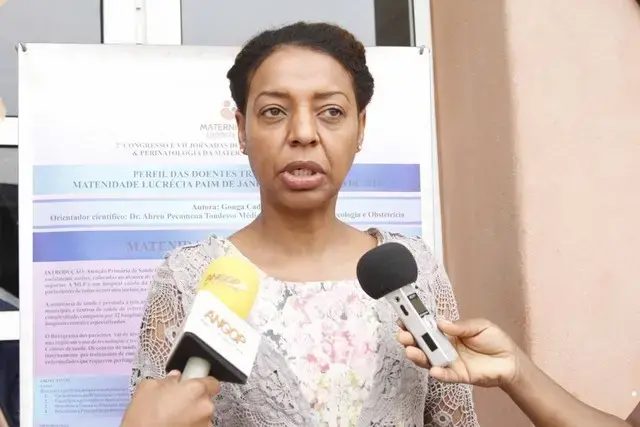SCALING UP ADOLESCENT GIRLS EMPOWERMENT & WELL BEING THROUGH MENSTRUAL MANAGEMENT AND COVID-19 PREVENTION
Investment Case
Good Menstrual Health Management (MHM) enables women and girls to exercise and enjoy human rights on the basis of equality. Poor MHM, including lack of WASH, healthcare, women and girls’ bodily autonomy, stigmatization, and limiting social, cultural or religious practices “can negatively impact the extent to which they enjoy certain rights including those to education, work, and health”. MHM is intricately connected to people’s ability to exercise their rights.Angola has a youthful population, with 46% of Angolans under the age of 15 and 66.4% under the age of 25. The women represent 51% of the total population. The population growth rate in Angola is high (3,2%). Estimated today at 33 million people, the total population is expected to reach 45 million in 2030, more than double by 2050 and more than triple by 2063.
There are 10 million girls and women of reproductive age in the country and in terms of education, while 75% of girls attend primary school, this proportion drops to a meager 15,5% by secondary school which coincides with the age of first menstruation or menarche. In addition, 58% percent of women who have not completed any level of education have already started reproductive life, which is more than twice as many as those with secondary or higher education (25%). Relevant geographical and gender disparities in schooling and school enrollment are also observed: only 28% of girls who live in rural areas is enrolled at secondary education against 55% of girls living in urban settings. In average 22% of girls and 8% of boys, never attended in a school. As noted by various World Health Organization, UNFPA, PSI, Wash United and Global Menstrual Collective studies in the Sub-saarian region, one of the main contributing factors to the high drop-out rates for girls in secondary school is lack of proper access to menstrual hygiene products, which can be costlyand hard to access, and adequate bathroom facilities (privacy, safety, soap and water).
Similarly, to what happens in many parts of the world, adolescents who become pregnant in Angola are those with low levels of education, who live in contexts of poverty and live in rural and peri-urban areas. When a girl discovers she is pregnant, she faces conflicts that arise in the family, and frequently the father of the child is absent. The pregnant girl will have no choice but to leave school, often unsupported, and without the facilities needed at school; she will be isolated and at a loss of how to find ways to support herself and her baby.Unfortunately, there are no precise indicators available in Angola to measure any topic related to Menstrual Health, and thus support the problem and integrate women and girls’ into decision making roles. This adds significance to the power of this kind of program to generate evidence to influence the creation of national policies that will promote menstrual health to maintain girls in school and postpone their first pregnancy.
In order to tackle this reality UNFPA Angola partnered with the Angolan Government to implement the Pilot Menstrual Health Management (MHM) Project in partnership with BeGirl Inc, Government and Civil Society key partners in 4 out 18 Provinces of the country (Luanda, Lunda Sul, Huambo and Huíla) to address and identify barriers related to menstruation and whose impact reinforces inequalities in gender. 1 The project was a first of its kind in Angola, where MHM was not previously a priority topic on the national agenda. However, due to UNFPA’s advocacy efforts and the innovative nature of the activities presented, the pilot gathered full support of municipal authorities and civil society organizations. This participation meant that schools, churches, and civil society organizations opened their meeting areas and staff time to participate in these trainings that focus on an innovative teaching method that is emotionally engaging, and empowers girls and boys whilst teaching them about menstrual health.
Given the success of this initiative, and the potential it had to gather the necessary evidence to later influence national policy, the present investment case intends to scale up the MHM Project to 14 additional provinces of Angola. This expansion proposal draws from the pilot phase achievements and lessons of the project, and builds on the on-going projects of the 8th programme cycle aligned to national priorities and envisioned to be implemented from 2021 to 2022. This Fundraising Brief and Investment case is also vailable in Portuguese.




